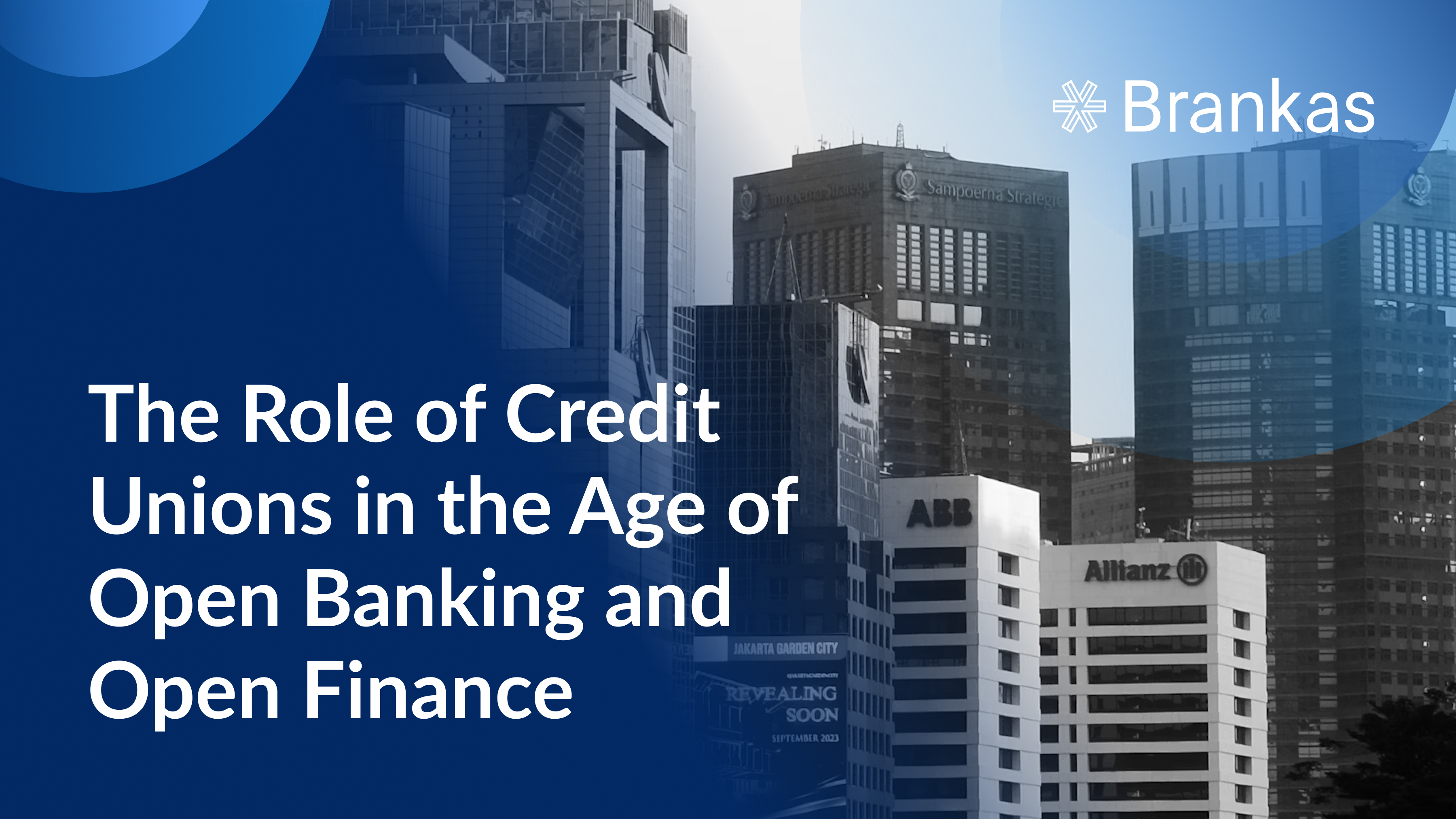
Open banking presents transformative possibilities for Indonesia’s MSMEs. The successful integration of MSMEs into the open banking framework has a profound impact that extends well beyond their individual growth.

Open banking has been a game-changer in banking and finance. Allowing third-party providers to access customer data enhances customer experience, promotes competition, fosters financial collaborative ecosystems, and enables emerging technologies integration. Fintechs and banks are embracing open banking and open finance. Will credit unions catch up?
Open banking is the exchange of data and services between banks and third-party providers using APIs (application programming interfaces). It allows customers to securely share their banking transaction data with authorized apps and services to enable features like account aggregation, personal financial management, and streamlined payments.
Open finance extends beyond banking data and encompasses a person’s entire financial footprint. Customers can consent to share data from a wider range of financial products and services, such as investments, pensions, loans, and insurance. This provides a more holistic view of a person’s fiscal situation and creates more personalized and tailored financial services.
Credit unions are member-owned financial cooperatives with the primary goal of serving their members rather than maximizing profits. Unlike traditional banks, which are often driven by shareholder interests, credit unions prioritize the financial well-being of their members. This member-focused approach translates into various benefits, such as lower fees, better interest rates on loans and deposits, and personalized customer service.
Credit unions play a crucial role in their communities by providing accessible financial services to individuals who might otherwise be underserved by larger, profit-driven financial institutions. They offer services like those provided by banks, including savings and checking accounts, loans, mortgages, and credit cards.
Credit unions can adapt and thrive in the age of open banking and open finance while fulfilling their mission of serving their members and contributing to the broader financial ecosystem.
· Credit unions can leverage open banking technologies to enhance their services and stay competitive in a rapidly changing market.
· Open banking principles align well with the core values of credit unions and offer them new ways to deliver personalized financial products and services that meet the unique needs of their members.
· By embracing open banking, credit unions can differentiate themselves from traditional banks through their community focus and personalized approach, potentially attracting new members.
· Exploring the implications of open banking for credit unions helps ensure they remain compliant with regulatory standards while maintaining the trust and security of their members’ data.
· Open banking facilitates partnerships with fintech companies, enabling credit unions to offer innovative solutions and broaden their service offerings.
· Credit unions have a long-standing commitment to financial inclusion. They can continue to play a vital role in providing accessible financial services to underserved populations.
Credit unions can gain deeper insights into their members' financial behaviors and needs by accessing a broader range of economic data. This enables them to provide customized advice, targeted offers, and better customer support. People’s Choice Credit Union in Australia collaborates with third-party providers to offer broader choices of financial services to their members and the power to compare and switch between products.
Credit unions can integrate innovative technologies and solutions into their service offerings by partnering with fintechs. These collaborations can lead to new product development, such as mobile payment solutions, digital wallets, and advanced budgeting tools, enhancing the overall member experience. The Navy Federal Credit Union in the US partnered with Tiller for open banking support. Members benefit from the personal financial management app.
Credit unions can streamline their operations and reduce costs. The ability to share and access data seamlessly lessens the need for manual processes and paperwork, speeding up transactions and improving accuracy. Automated systems and enhanced data analytics can lead to more efficient loan processing, quicker credit assessments, and faster service delivery. This operational efficiency benefits the credit union and translates to better and swifter services for members. The Central Liverpool Credit Union in the UK, in partnership with NestEgg.ai, can make lending decisions quickly for the total amount a member needs.
Credit unions have always been champions of financial inclusion. Open banking amplifies this mission by providing access to a wider array of financial data, which can be used to develop products for underserved populations. Police and military personnel often have trouble with their credit history. The Police Credit Union in the UK partnered with Credit Kudos to leverage open banking data and gain better insights into an applicant’s risk profile.
Open banking and open finance are about to be a prominent element in an increasingly data-driven financial infrastructure. If credit unions are to capitalize on the potential of open banking and open finance, they must:
Credit unions must invest in modern digital infrastructure to facilitate seamless data sharing and integration with third-party providers. This includes upgrading legacy systems, adopting secure APIs, ensuring robust cybersecurity measures are in place, and prioritizing developing user-friendly digital interfaces that enhance the member experience.
These partnerships can range from integrating fintech services, such as personal finance management tools, to co-developing new financial products. Credit unions should carefully select fintech partners whose values and goals align with their member-centric focus to maximize the benefits of these collaborations.
Credit unions must stay updated with evolving regulations and ensure their data practices meet the stringent standards set by regulatory bodies. This includes adhering to data privacy laws, implementing robust data security measures, and maintaining transparency in data usage. Regular audits and compliance checks are essential to avoid legal repercussions and maintain member trust. Investing in legal and regulatory expertise can help credit unions navigate the complex regulatory landscape effectively.
Credit unions must adopt advanced cybersecurity protocols to protect member data from breaches and cyberattacks. This includes encryption, multi-factor authentication, and continuous monitoring of data access and usage.
Credit unions should use the data insights from open banking to tailor their products and services to individual member requirements.
Continuous training and professional development programs are necessary to equip employees with the skills to navigate the open banking landscape.
Adopt a proactive approach to exploring new technologies and business models that can enhance their service offerings. Being open to experimentation and quickly adapting to changing market trends will position credit unions as forward-thinking institutions.
Credit unions stand at a pivotal moment in the financial industry. Embracing the opportunities and addressing the challenges presented by open banking and open finance can significantly enhance your ability to serve your members and stay competitive. Act today to lead the way in delivering personalized, efficient, and secure financial services.

Open banking presents transformative possibilities for Indonesia’s MSMEs. The successful integration of MSMEs into the open banking framework has a profound impact that extends well beyond their individual growth.

Adopting instant payment solutions is not just a technological upgrade in the UAE; it’s a shift that is changing how businesses operate, boost their competitiveness, and drive growth.